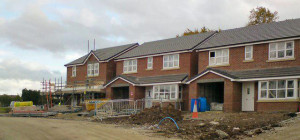 Despite being located on the crossroads of Middle East, Asia, Europe and North Africa, Dubai used to be a small village where fishing and pearl diving were the major source of income. Soon after the discovery of oil reservoirs in 1966, the Emirate showed unmatched progress in all major sectors like business, trade, real estate, transportation and city infrastructure. The Emirate showed first signs of progress in 1980's, when Dubai's ruling family Sheik Mohammed and his father took primary steps to diversify city's economy. They invested petrodollars to construct luxury real estate projects like beach hotels and resorts to attract tourists across the globe. Deliberate efforts of State Government, developers and investors have enabled city to become the business and finance hub in the region.
Despite being located on the crossroads of Middle East, Asia, Europe and North Africa, Dubai used to be a small village where fishing and pearl diving were the major source of income. Soon after the discovery of oil reservoirs in 1966, the Emirate showed unmatched progress in all major sectors like business, trade, real estate, transportation and city infrastructure. The Emirate showed first signs of progress in 1980's, when Dubai's ruling family Sheik Mohammed and his father took primary steps to diversify city's economy. They invested petrodollars to construct luxury real estate projects like beach hotels and resorts to attract tourists across the globe. Deliberate efforts of State Government, developers and investors have enabled city to become the business and finance hub in the region.
Why huge investments were made in real estate sector?
Having identified its limited oil reservoirs, State Government decided to establish itself as a financial and trading hub for this region with aim to reduce gaps between East and West. Developing iconic real estate projects in residential, commercial and retail sector was the major part of this plan. It was necessary to execute business and accommodation needs of foreigners who were relocating Dubai for investments and better job opportunities at that time. Huge shopping malls, residential and commercial projects were being constructed by Emirates leading developers like Nakheel. After identifying the profit earring potential, leading companies and corporate decided to open their branch or even head offices in Dubai. This in turn enhanced the property demand for residential, commercial and retail sectors.
Rise and fall of Dubai Real Estate
Spectacular boom was observed in Dubai during the era of 2002-2008. Especially the real estate sector showed unmatched growth and progress in all sectors. The highly cosmopolitan culture, tax free environment, luxury life style with negligible crime rate and stable economical and political conditions with excellent employment opportunities made this city an investment and lifestyle hotspot in the region of Middle East. Whereas, iconic high-rise residential and commercial developments have enticed local and foreign investors and they compelled to invest in Dubai real estate sector. After observing enormous interest of people around the world, Sheik Mohammed announced to implement the freehold property law in 2002 that enabled foreigners to purchase properties in specific neighborhoods, with complete ownership rights. Whereas, iconic developments like Palm Jumeirah, Dubailand, Jumeirah Garden City, Business Bay and Dubai Marina dragged investor's attention across the globe. The freehold property ownership law positively impacted the Dubai property market and made investors for consider making investments in off plan projects as they don't want to miss their chance. It had observed that major buyers were Asians, Iranian, Europeans, Russians, GCC and local buyers. To meet the need of buyers and investors, Government kept on supplying new projects and property units. But property market experienced a crash in 2008, due to global economic recession.
Major Circumstances due to global economic recession
One might think how property market got affected with economic recession. During the recession most of the foreign companies dismissed their staff as they failed to maintain profits. The Jobless foreigners preferred to move back to their native countries and in turn number of rental property units became empty. This had badly hit the short term rental market. Overall real estate sector showed sudden fall in demand in all sectors and such circumstances created surplus property market. Having observed decline in the real estate sector, Emirates major lenders Tamweel and Amlak stopped lending further. This badly destroyed buyer's confidence and they prefer not to invest in emirate's asset market. Although, market was already experiencing oversupply of property units, Government didn't stop adding new units. This had completely disturbed the equilibrium of the market and market conditions became worst. According to basic economic law of demand and supply, surplus in the market lower the prices. Same thing happened with Dubai real estate sector. As there were very buyers and tenants were there to invest or occupy property units. Asset prices in the city started declining in year 2008 and this decline continued to 2010. Asset prices have fallen by 60%-70% as compared to the asset prices in year 2006.
Recovery of Dubai property market
After enjoying 4-5 consecutive years of success, Dubai property market touched bottom line in year 2008. Later in year 2010, Dubai real estate sector started showing first sign of recovery, and started showing stability in villa prices across the city. Later gradual recovery was observed throughout the market. However, property prices were still fallen down in some areas. Few steps have been taken to support market recovery. Emirates banks reduced interest rates on mortgage loans whereas government diversified VISA policy to attract foreign investors. After observing positive market trends real estate experts predicted that market will start recovery in year 2012 and soon real estate sector will achieve its original position.
Living in Dubai, UAE David Marsha works as an editor for www.bhomes.com. Also guest blogging for several real estate and travel blogs. He has been blogging for reputed UAE real estate firms offering commercial and residential services for Dubai properties.







